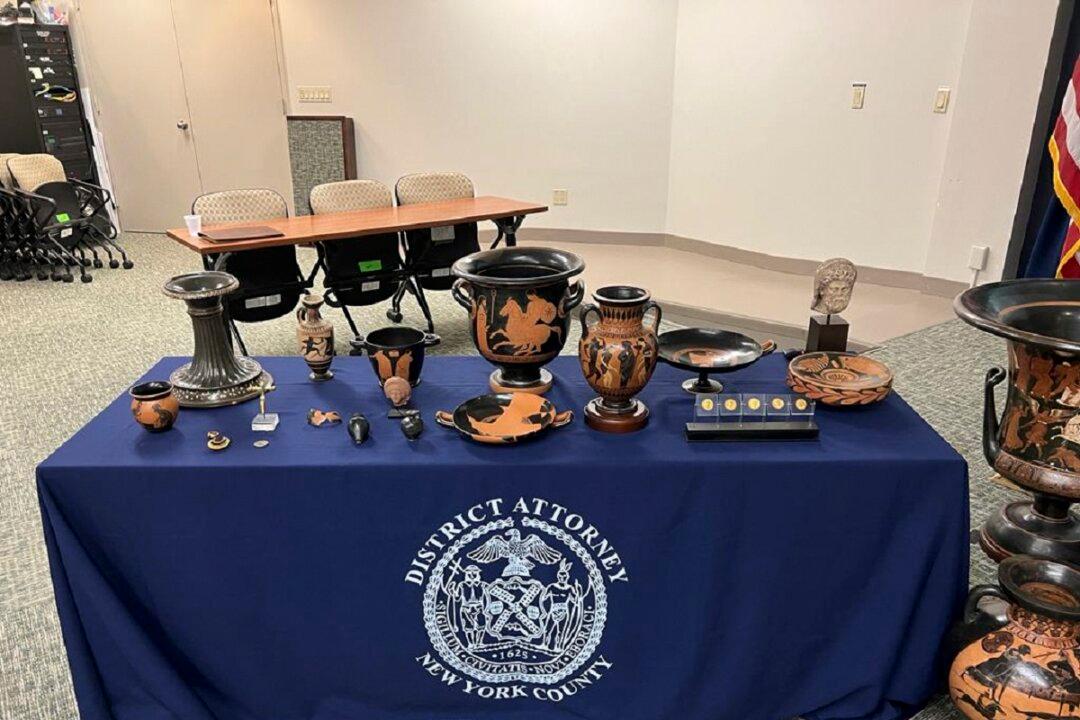ROME—Italy celebrated the return Friday of 266 antiquities from the United States, including Etruscan vases and ancient Roman coins and mosaics worth tens of millions of euros (dollars), that were looted and sold to U.S. museums and private collectors.
The returned items include artifacts recently seized in New York from a storage unit belonging to British antiquities dealer Robin Symes, officials said. In addition, the haul that arrived in Rome included 65 objects that had been offered by a collector to Houston’s Menil Collection, but were declined.





